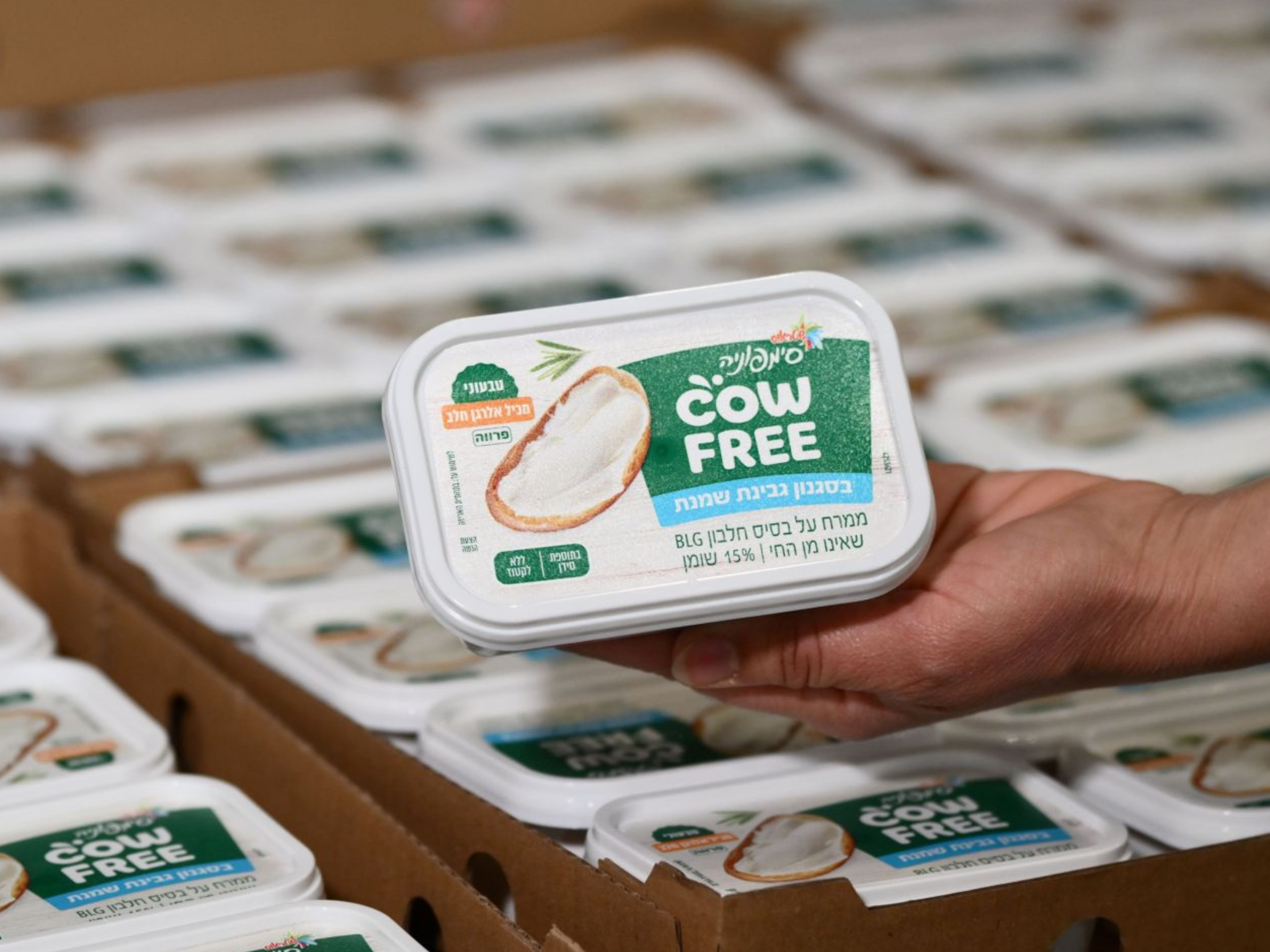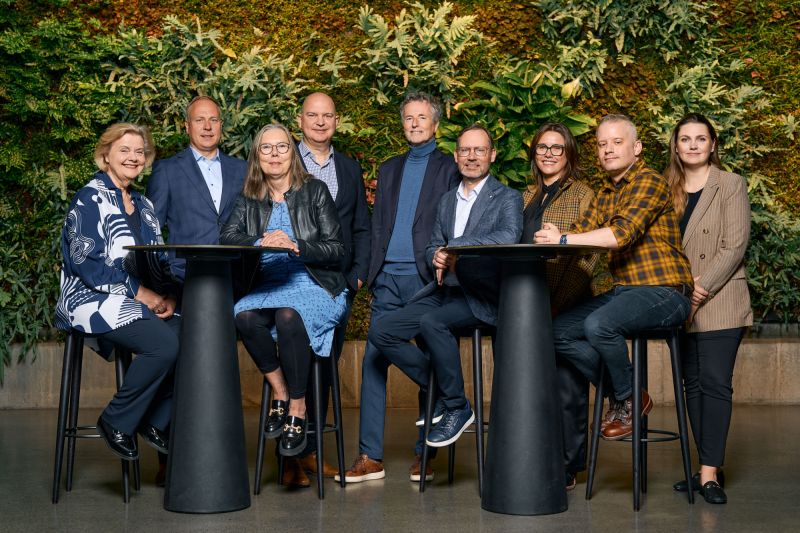

The importance of creating a seamless transition for consumers to embrace sustainable protein choices
In getting to know all +65 speakers taking part in The Future of Protein Production LIVE!, we are exposing the future trends and solutions that will take alternative proteins from pilot to plate. Here we speak with Karim Kurmaly, Director of Smart Protein from DSM, which boasts an integrated portfolio of ingredients, expertise, and solutions to help F&B producers differentiate and get to market fast
At the forefront of innovation in the field of alternative proteins, DSM is looking to turn the way we think about sustainable food production on its head. That’s why we’re delighted the company, represented by Director of Smart Protein, Karim Kurmaly, will be speaking at The Future of Protein Production LIVE!, taking place on 11/12 October 2023 at RAI Amsterdam.
Kurmaly’s journey into food-tech began with a deep passion for the sea, swimming, and windsurfing. This love for the ocean led him to pursue a PhD in marine science, where he intended to explore the mysteries and wonders of marine ecosystems. However, the challenging job market in the UK at the time forced him to think outside the box. Embracing his entrepreneurial spirit, he ventured into the food sector by starting a pizza business in London. Little did he know that this unexpected detour would eventually shape his path in unforeseen ways.

Fate had more surprises in store for Kurmaly when he encountered an intriguing opportunity at a meeting at Heathrow Airport, which led him to join an innovative Dutch company, known today as Nutreco. The experience gained during his time with Nutreco became the steppingstone for a global career that took Kurmaly to organizations such as F. Hoffmann La-Roche, biotech start-up, Veramaris, and ultimately DSM.
The company’s work in alternative proteins encompasses a wide range of cutting-edge technologies and solutions. By harnessing the power of biotechnology, the Netherlands-headquartered ingredients specialist has developed numerous novel ways to produce proteins from non-animal sources, including plants, algae, and even microorganisms.
Through extensive R&D, the Dutch company has perfected the art of creating alternative proteins that are not only nutritionally rich but also highly palatable. These can be used as ingredients in meat substitutes, dairy alternatives, and plant-based beverages. Through collaborations with food manufacturers, DSM is playing a pivotal role in bringing these innovative products to market, providing consumers with healthier and more sustainable choices.
Shedding light on the pressing need for alternative proteins in today’s world, Kurmaly believes that with the global population projected to reach 10 billion by 2050 and an increasing demand for protein from a burgeoning middle class, the imminent protein demand-supply gap should be a major cause for concern for all of us.
If the protein gap comes upon us faster as a result of climate change – which could precipitate periodic price rises of incumbent proteins – it is likely that uncertainty will lead, commercially, to a faster adoption of alternative proteins
“If the protein gap comes upon us faster as a result of climate change – which could precipitate periodic price rises of incumbent proteins – it is likely that uncertainty will lead, commercially, to a faster adoption of alternative proteins as supply chains take action to minimize supply disruptions and price distortions,” he says.
“Climatic change could accelerate inclusion of alternative proteins just as Covid accelerated adoption of virtual meetings and internet retail sales platforms,” he adds. “If we combine climate change forecasts with the 2050 protein gap of 100 million tons, we could be entering a very interesting period where alternative proteins become tomorrow’s prerequisite essentials.”
We need to explore innovative solutions that can provide protein alternatives without depleting our resources or contributing to climate change
Kurmaly and his team passionately advocate for alternative proteins as a viable solution to bridge that gap while reducing the strain on land, water, and potentially harmful agricultural practices. “Traditional methods of protein production are facing significant challenges in meeting the growing demand sustainably,” he feels. “We need to explore innovative solutions that can provide protein alternatives without depleting our resources or contributing to climate change.”

Leveraging DSM’s biotech platform, Kurmaly’s team is developing a unique microbial strain of ‘Smart Protein’, which will provide the industry with a natural net-zero-carbon and high-concentrated (70%) protein for use in several food and feed applications. “In fact, we are putting carbon dioxide back into the food chain via Smart Protein and avoiding the [negative] impact on biodiversity. And, over the next 12 months, we expect to make the transition from piloting to tolling the product.”
He and his team believe that if we secure the correct price point and satisfy taste, texture, tribology (mouth-feel) and nutritional profile for the consumer, we could see Smart Protein included into a variety of solid (burgers, nuggets, sausages) and as a protein isolate for liquid (sports drinks) food applications. “We could even see it becoming a key ingredient in companion animal food,” Kurmaly adds.
To some extent there is over-hype. However, isn’t this a natural progression in the early phase of development of any new industry? The key will be, which ones among us can bring our solutions to market at the required global scale to satisfy customers’ global supply chains?
Although the alternative proteins sector is witnessing somewhat of a lull in comparison to its boom years of 2020-2021, these are undoubtedly short-term blips. Most serious players in the industry only ever eye the long game. That’s why Kurmaly’s team is not too bothered with the media circus that often follows the sector. “The excitement in the protein space has contributed to many publications and announcements of solutions to feed the world,” Kurmaly says, when asked whether that hype could have any significant harm. “To some extent there is over-hype. However, isn’t this a natural progression in the early phase of development of any new industry? The key will be, which ones among us can bring our solutions to market at the required global scale to satisfy customers’ global supply chains?”
At The Future of Protein Production LIVE!, Kurmaly will deliver a presentation entitled ‘Protein without footprints’, in which he will explore the rising global interest in utilizing microbial biomass as a sustainable food source. “To be successful, any proven biotech platform needs to be robust, operable, scalable at low cost, provide flexibility in type of feedstock and type of microbial strain cultivated, and be fit for the future – or as we say net-zero-carbon protein. Complex technical platforms require highly skilled operatives and often result in high cash burn rates.”

It is not lost on Kurmaly and his team that the alternative proteins industry faces significant challenges on its path to widespread adoption though. One crucial aspect is getting the price and scale right. These new foods need to be competitive in terms of cost to encourage broader acceptance and accessibility, while consumer acceptance plays a pivotal role.
“We need to create products that not only provide the nutritional benefits but also meet consumer expectations in terms of taste, texture, and overall experience,” Kurmaly continues. “It’s about creating a seamless transition for consumers to embrace sustainable protein choices.”
The production of net-zero-carbon protein decoupled from agriculture has its risks when it comes to the need to develop at scale, effectively and efficiently, a new supply chain that can meet the global demand from customers and consumers
He also suggests it is vital that any sustainable protein alternative be decarbonized and decoupled from agriculture to be able to meet customers’ Scope 3 SBTi commitments. “The production of net-zero-carbon protein decoupled from agriculture has its risks when it comes to the need to develop at scale, effectively and efficiently, a new supply chain that can meet the global demand from customers and consumers. As we say, the real job is getting the concept to the mouth of the consumer. To be successful, however, we need to ensure we collaborate with the traditional sector and are not seen as young upstarts or disruptors. The latter characterization is antagonistic and sucks a lot of energy.”
Of course, the biggest challenge for most organizations – due to the numerous trade-offs and innovative projects in progress – is speed in making decisions and allocating appropriate resources (OpEx and CapEx) to accelerate and secure maximum valuation. That challenge is relevant to all large organizations, including DSM.
To expedite the industry’s overall ambitions, Kurmaly proposes a collaborative approach. He suggests pooling national and regional investment funds, grants, and subsidies, along with venture capital, to mitigate the risks associated with initial industrial-scale investments.
Collaboration is key in driving the alternative protein industry forward. By leveraging collective resources and expertise, we can accelerate development and adoption of sustainable protein solutions
“Collaboration is key in driving the alternative protein industry forward,” he believes. “By leveraging collective resources and expertise, we can accelerate development and adoption of sustainable protein solutions.”
Through the endeavors of Kurmaly and his team at DSM, significant milestones have been achieved. Leveraging their biotech platform, the unique ‘Smart Protein’ microbial strain offers a promising avenue to address the challenges faced by the food and feed industries.
His team can proudly reflect on its achievements. “Our goal is to make sustainable proteins the preferred choice for consumers worldwide,” says Kurmaly. “We want to provide solutions that are not only good for the planet but also delicious, nutritious, and accessible to everyone.”
Looking ahead, the DSM expert envisions a future where sustainable protein sources become the norm, nourishing a growing population while preserving our planet. He predicts a consumer base that is increasingly aware of the impact of carbon emissions and seeks nutrition, health, and eco-footprint labels when making food choices. “I expect tomorrow’s consumer to have more choice and purchase food on the basis of nutrition and health (‘What is good for me?’) and on the eco-footprint labeling of food (‘What is good for my children?’).
By 2050, alternative proteins will no longer be a niche but a fundamental component of our food system. They will offer a wide array of options, contributing to a more sustainable and planet-friendly food system
“By 2050, alternative proteins will no longer be a niche but a fundamental component of our food system. They will offer a wide array of options, contributing to a more sustainable and planet-friendly food system.
“We have the power to shape a more sustainable food system, but we need to work together to make it a reality,” Kurmaly concludes. With leaders such as him spearheading the movement, sustainable protein sources are poised to revolutionize the way we nourish ourselves and protect our planet. Through innovation, collaboration, and a shared commitment to sustainability, he is adamant that we can build a future where alternative proteins are the cornerstone of a thriving and environmentally conscious food system.
• Karim Kurmaly is one of more than 65 speakers appearing at The Future of Protein Production LIVE!, taking place at RAI Amsterdam on 11/12 October. Click here to secure your delegate's pass and join more than 400 senior-level industry professionals to hear a fantastic agenda featuring 30 standalone presentations, take part in six engaging panel discussions, watch an exciting Startup Pitch Symposium and network with +30 exhibiting companies and other attendees
If you have any questions or would like to get in touch with us, please email info@futureofproteinproduction.com






